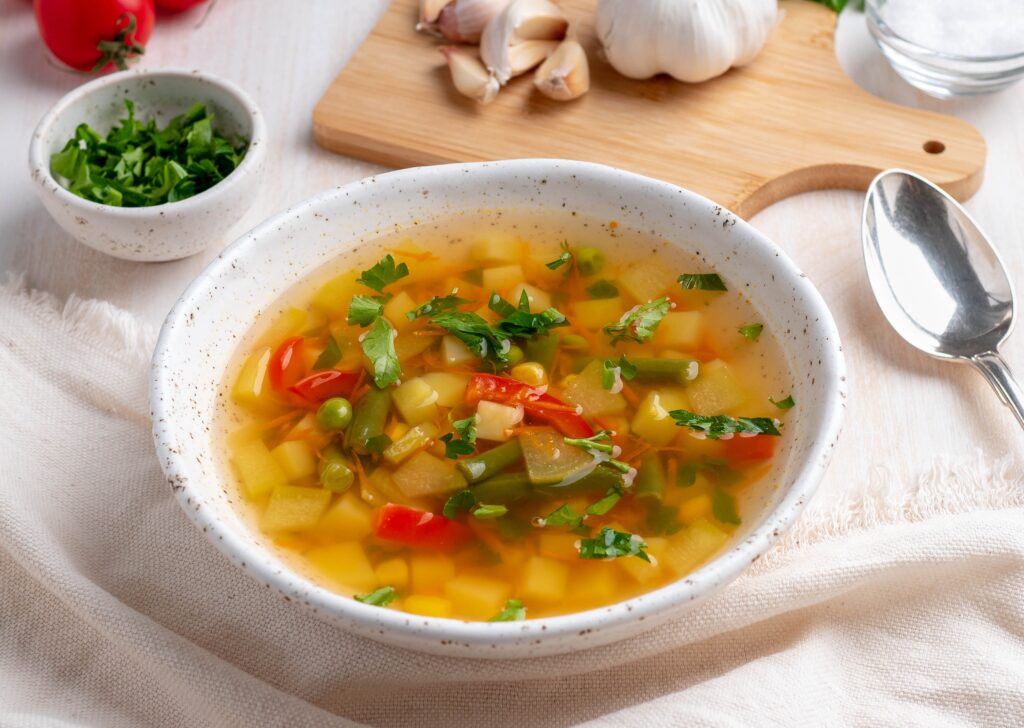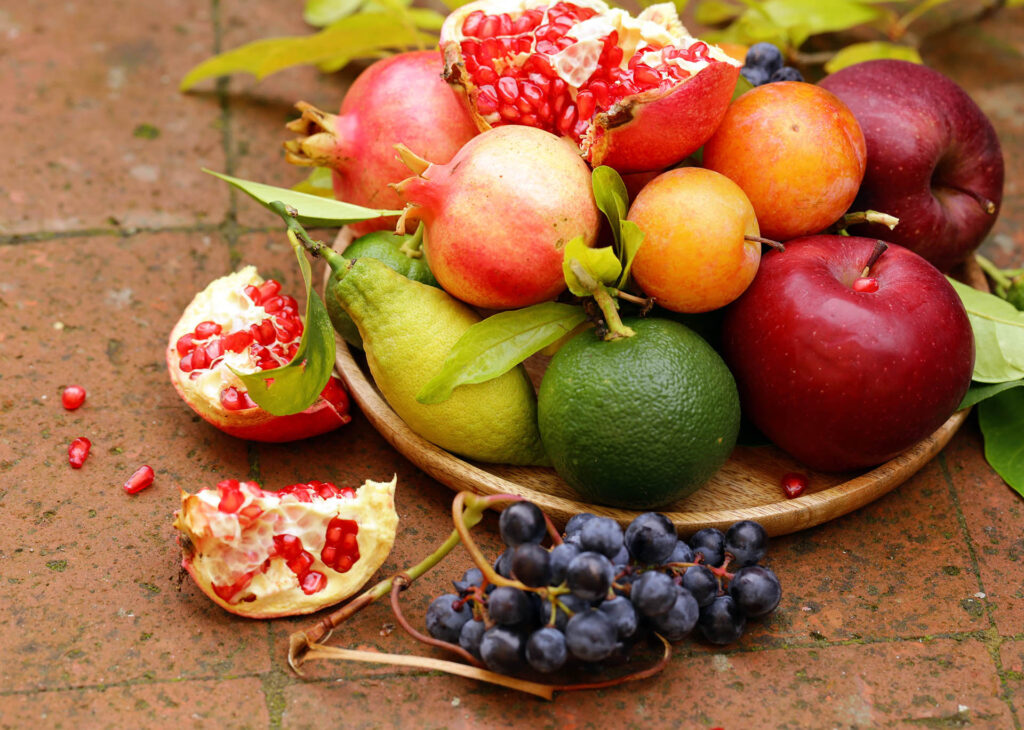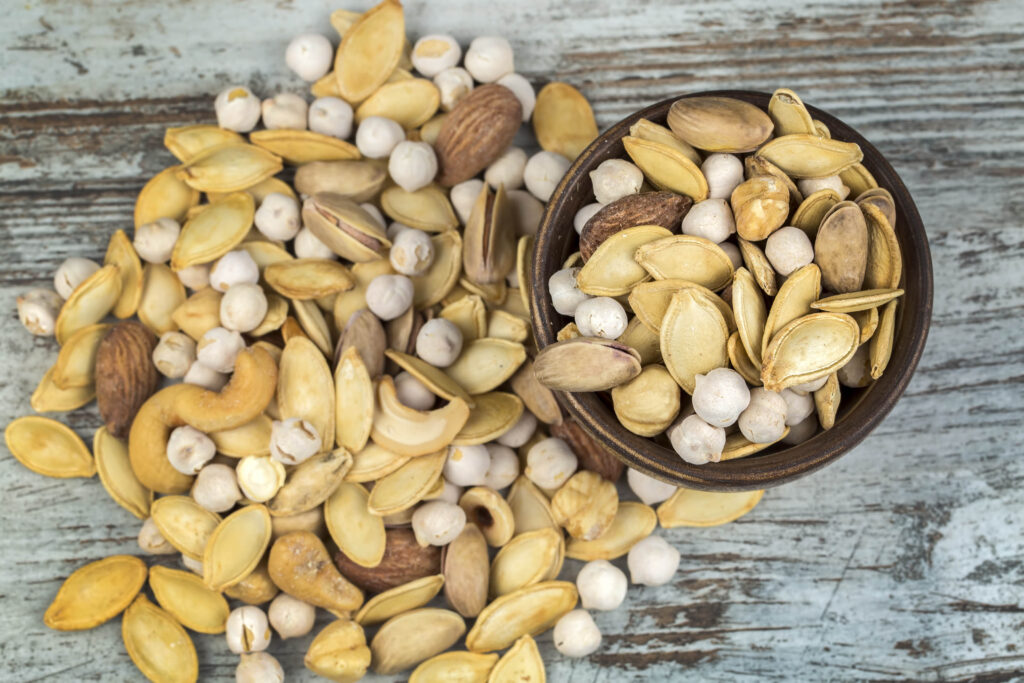Best Plant-based Food to Enjoy During Monsoon Season
The monsoon season brings with it a delightful change in the weather, transforming the environment into a lush, green paradise. However, the increased humidity and unpredictable rains can also bring about health concerns such as colds, indigestion, and a general feeling of sluggishness. A plant-based diet, rich in fresh fruits, vegetables, and plant-based proteins, can be particularly beneficial during this time, helping to boost immunity and keep you energized. Here are some of the best plant-based foods to enjoy during the monsoon season:
1. Hot Soups

Nothing beats the comfort of a warm bowl of soup on a rainy day. Opt for vegetable soups packed with nutritious ingredients like carrots, beans, spinach, and tomatoes. Adding a touch of ginger and garlic can enhance the flavor while also providing anti-inflammatory and immune-boosting benefits. Lentil soup, also known as “dal,” is another excellent choice, offering a good source of protein and fiber.
2. Steamed Vegetables and Salads
Steamed vegetables retain most of their nutrients and are easy to digest, making them an ideal monsoon food. A mix of broccoli, cauliflower, carrots, and beans can be lightly seasoned with herbs for a wholesome meal. Pair these with fresh salads made from seasonal vegetables like cucumbers, tomatoes, and bell peppers. Adding a tangy lemon dressing can make the salad more refreshing and palatable.
3. Spiced Herbal Teas

Herbal teas are perfect for monsoon evenings. Teas made from lemon grass, ginger, tulsi (holy basil), and mint can help boost immunity and aid digestion. Adding a pinch of turmeric to your tea can provide additional anti-inflammatory benefits. These teas not only keep you warm but also help in combating the common cold and flu.
4. Pulses and Legumes
Pulses and legumes, such as chickpeas, black beans, and lentils, are excellent sources of plant-based protein and fiber. They can be incorporated into various dishes like curries, stews, and salads. A chickpea and vegetable curry, served with brown rice or quinoa, makes for a hearty and nutritious meal that is perfect for the monsoon season.
5. Whole Grains
Whole grains like brown rice, quinoa, and millets are rich in fiber and essential nutrients. They are easily digestible and can help keep your energy levels up. Millet-based dishes, such as millet porridge or upma, are light yet satisfying options for breakfast or lunch during the rainy season.
6. Fermented Foods
Fermented foods like idli, dosa, and sauerkraut are excellent for gut health, which is crucial during the monsoon when digestive issues are common. Idli and dosa are traditional South Indian dishes made from fermented rice and lentil batter. These foods are not only delicious but also provide beneficial probiotics that support a healthy digestive system.
7. Seasonal Fruits

Fruits such as papaya, pomegranate, and citrus fruits are in season during the monsoon and are packed with vitamins and antioxidants. These fruits can help boost your immune system and keep you hydrated. A fruit salad or smoothie made from these seasonal delights can be a refreshing and nutritious snack.
8. Nuts and Seeds

Nuts and seeds, such as almonds, walnuts, flaxseeds, and chia seeds, are great sources of healthy fats, protein, and fiber. They can be added to your breakfast cereals, salads, or enjoyed as a snack. These nutrient-dense foods help keep you full and provide long-lasting energy.
Eating a balanced and nutritious plant-based diet during the monsoon season can help you stay healthy and energized. Focus on incorporating a variety of fresh fruits, vegetables, whole grains, and plant-based proteins into your meals. Additionally, staying hydrated and consuming warm, comforting foods like soups and herbal teas can help combat the chill and keep common monsoon ailments at bay.
Pledge to try veg

